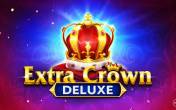
Norwegian Gambling
Norway has one of the strictest gambling-related legislations in Europe and the rest of the world. Since Norway is not an EU member and its laws are not regulated by European authorities, there are no prerequisites for weakening the state monopoly on gambling.
Nowadays, there are only two gambling operators in Norway. Their range of services includes these legal games of chance:
- Norsk Rikstoto offers offline and online horse racing.
- Norsk Tipping deals with lotteries, sports betting, poker, keno, and scratch cards.
Land-based casinos are not available in Norway and are not expected to appear in the future. The Totalisator Act, the Gaming Act, and the Lottery Act regulate games of chance and lotteries in Norway.
History of Gambling in Norway
It has been known that the valiant Vikings enjoyed playing dice a thousand years ago. This fact is mentioned in the Scandinavian sagas. One of the most famous sagas tells us about the role of dice in gaining control over the island of Hisingen for Norway in 1020. The Norwegian King, Olav Haraldsson, made a deal with the Swedish king. According to the agreement, the winner of the dice game will own the island.

The Swedish king was the first player to throw dice. He rolled a 12. Believing that gods supported him, he suggested that Olaf did not need to throw dice. However, Haraldsson rolled the same number. The second roll brought the Swedish king the same twelve points. Nevertheless, Haraldsson managed to roll a higher score!
Six were rolled on the first die, and the second die was broken down into two parts, showing seven in total.
Thus, the Norwegian king Olaf Haraldsson rolled a 13 and gained the island of Hisingen.
- The first casino appeared in the country only in the 20th century. Until then, all kinds of gambling were illegal.
- The Totalisator Act was approved in Norway only in 1927. It was the first law to legalize gambling.
- In 1947, Norsk Tipping was created. Initially, it was engaged in the organization of lotteries.
- In 1982, Norsk Rikstoto entered the market. It was authorized to accept bets on horse racing.
- The Gaming Act, approved in 1992, allowed Norsk Tipping to take exclusive control over all Norwegian lotteries, sports betting, and other legal games of chance.
Currently, Norsk Tipping provides mobile phone games and online entertainment. To enjoy any game from Norsk Tipping, you must be a registered user and have a Playcard.
Monopolization of Slots in Norway
Norway had very liberal legislation concerning slot machines in the 1990s. Private operators could place them in public places such as grocery stores, bars, hotels, and gas stations.
The gross turnover from slot machines in 2001 and 2004 was 9 billion and 26 billion NOK, respectively. This was a massive increase compared with 1990, when the revenue reached only 200 million NOK. Interestingly, slot machines brought in 64% of the total turnover of the entire gambling industry in Norway in 2004.

In 2002, the authorities started trying to limit the number of slots. In 2003, the Norwegian parliament authorized the state-owned company Norsk Tipping to monopolize slots in Norway. The law became valid in 2007. It was mentioned that the entire revenue would be used for charitable purposes. Slots revenue is an essential source of income for sports teams, charity funds, and other organizations.
The creation of the monopoly is explained by the desire of the Norwegian authorities to prevent and combat problem gambling through more severe age restrictions and market monitoring.
In 2008, Norsk Tipping exchanged all the old slot machines for new MULTIX slots. The latest slot machines allow strictly regulated and limited games.
- You must be at least 18 years old to play the Norwegian version of slot machines.
- You must also have an account, ID card, and credit card.
- It is impossible to bet using cash while playing MULTIX slots.
- Each gambler cannot lose more than $75 per day and over $400 monthly.
- A one-hour break has to be made after each one-hour gaming session.
- The highest bet is approximately $10, whereas the maximum payout is $300.
All data of MULTIX slots are stored in the data warehouse of Norsk Tipping, including:
- ID card, age, gender, address, and phone number;
- Date of gaming sessions;
- Number of purchased tickets;
- Size of payouts;
- Time from the most recent gaming session;
- Where the tickets were purchased;
- Whether a player lost or won.
At the moment, there are about 1,200 gambling places in Norway, offering approximately 2,750 Multix slots.

Poker in Norway
Poker is one of the most popular card games in the world, and Norway is no exception. Nonetheless, poker in Norway used to be illegal. It was prohibited to organize poker games, particularly major tournaments. Norwegian poker players were even forced to hold the Poker Championships of Norway in foreign countries. Stockholm and Dublin usually hosted such tournaments.
Yet, the Norwegians have been able to play poker at home since January 1, 2015. But there are specific terms and conditions:
- Players should be friends.
- The game should not be professionally organized, i.e., it is prohibited to pay a rake.
- It is allowed to gamble only in a private house.
- Up to ten players can participate in the game.
- The total bet per player cannot exceed 1,000 MOK (roughly 120 dollars).
It was also allowed to organize the annual Poker Championship of Norway. In 2015, Norway hosted the first championship. It was a great success since 1,974 players participated in the Main Event. This is a world record for closed national championships! Felix Stephensen won the tournament and earned $1.4 million in prize money.
In addition, it is legal to organize free poker tournaments (freerolls) in Norway. However, the authorities have also imposed some restrictions: players and organizers of the freerolls cannot promote foreign gambling companies, and their titles and logos cannot be used on banners, chips, clothes, tables, etc.
Norwegian Online Gambling: Everything Not Forbidden is Allowed
The situation with online gambling seems to be not so bad in reality. If you strictly follow the legislation, everything seems sad for Norwegian gamblers. Norway has only two licensed websites:
- the Norsk Riskoto website allows wagering on horse racing,
- the Norsk Tipping site offers lotteries, sports betting, poker, keno, and scratch cards.
Nevertheless, many Norwegian gamblers play on unlicensed foreign sites without any problems. Hundreds of online clubs gladly accept Norwegians, and all operators are aware of their high income. The same situation is observed in other countries where online casinos are banned by law, but those who break these laws are not punished.
Technically, Norwegians may not bet on any unlicensed online website. Yet, this is just a blind threat. The biggest problem Norwegian players can face is the inability to deposit money into online casino accounts using credit cards due to the Payment Law approved in 2010.
Considering the draconian legislation against land-based gambling, it is unsurprising that online casinos have become popular among Norwegians. The Norwegian authorities worried that the players were sending their money abroad. They decided to prevent this somehow. How do the authorities usually solve such problems? Of course, they want to ban such activities.
So, in 2010, the Government of Norway prohibited Norwegian financial institutions from transferring money to the accounts of all foreign gambling companies.
This prohibition is unique in Europe. However, it is useless. Gambling websites that allow Norwegian customers to gamble can easily create technical solutions, allowing them to make deposits easily.
This law has negatively affected Norwegian tourists who want to visit Las Vegas or other cities where casinos are located. If you stay in Las Vegas at a casino hotel, the card issued by a Norwegian bank becomes invalid. You cannot even pay for accommodation or dinner in the restaurant! In this way, the government takes care of people. It is important to emphasize that Norwegians MAY gamble at online casinos of foreign companies. The government wants to create additional difficulties to stop moving money out of the country.

It should be noted that the Government of Norway is either too foolish or too thoughtful. Its members believe that people should be protected from themselves. Therefore, many gambling activities are banned.
Just take a look at the list of prohibited activities in Norway:
- Stores are closed on Sunday.
- Drinking beer and wine in parks is not permitted.
- Segways are banned.
- It is not allowed to drink beer during elections.
- Professional boxing is prohibited (in Norway, it is forbidden to hold competitions in kinds of sports that may lead to knockouts).
- Fireworks are prohibited.
- It is not permitted to sell tobacco and cigarettes freely (they are hidden in stores).
- People under 18 years old may not visit solariums.
Kong Kasino
In January 2014, Norsk Tipping finally created something like a casino. It was called Kong Kasino. The website norsk-tipping.no/kongkasino is the first online casino that operates in Norway under a license issued by the Norwegian authorities. It offers various casino games, slots, bingo games, video poker, and scratch cards. Kong Kasino was launched to prevent people from gambling at foreign online casinos.

To be sure, Norsk Tipping has to follow strict rules established by Norwegian gambling-related legislation. Thus, gamblers have noticed significant differences between this casino and online gambling websites owned by foreign companies.
- Kong Kasino operates only from 7 a.m. to 3 a.m.
- The range of games at Kong Kasino is much less impressive than traditional online casinos can offer. Foreign online casinos usually provide gamblers with hundreds of games, whereas Kong Kasino has only 68 models available. Perhaps its set of games will be improved. However, at the moment, it is very modest.
- Norsk Tipping develops slots that are available at Kong Kasino. Norsk Tipping does not cooperate with world-renowned developers (for example, Net Entertainment or Microgaming). Therefore, Kong Kasino will not please customers with the well-known and popular slot machines.
- Bets at Kong Kasino are limited. For example, wagering over 0.1 NOK per line is not allowed. This amount is tiny compared to the size of bets at foreign online casinos.
- Kong Kasino does not provide customers with bonuses for opening accounts. Other bonuses are not available.
Kong Kasino has one undisputable advantage: Norwegian gamblers do not need to pay taxes on winnings. However, Norwegian gamblers must pay taxes on all payouts exceeding $10,000 if they win at other online casinos. Payouts at Kong Kasino will never be as huge as at foreign online casinos.
Future of Gambling in Norway
The Norwegian gambling business has a long history. In the 1950s, gambling in Norway was considered to be a platitude. Currently, Norway is the third leading country in gambling in Europe. What are the prospects of the industry in the future?
While the government justifies its draconian legislation against gambling addiction, society believes this approach is invalid. This fact is confirmed by research.
Analysis of the Norwegian Gaming Board in 2007 showed that 1.3% of the 3,000 respondents were considered addicted gamblers. The same investigation was repeated in 2010. So, the number of addicted gamblers increased to 2.1%.
According to some experts, truly addicted gamblers will always find a way to break the law and avoid restrictions. Therefore, the government limits all Norwegian citizens, although only a tiny minority is affected. In this regard, new restrictive laws may have the opposite effect, pushing gamblers to illegal activities.
Meanwhile, the Government of Norway will start blocking foreign gambling sites. However, considering society's attitude, the government will probably have to reconsider its strategy. The lawmakers have already shown their intention to open the gambling market to competition, allow foreign operators to compete fairly with the state-owned operators, and pay taxes in Norway.












































